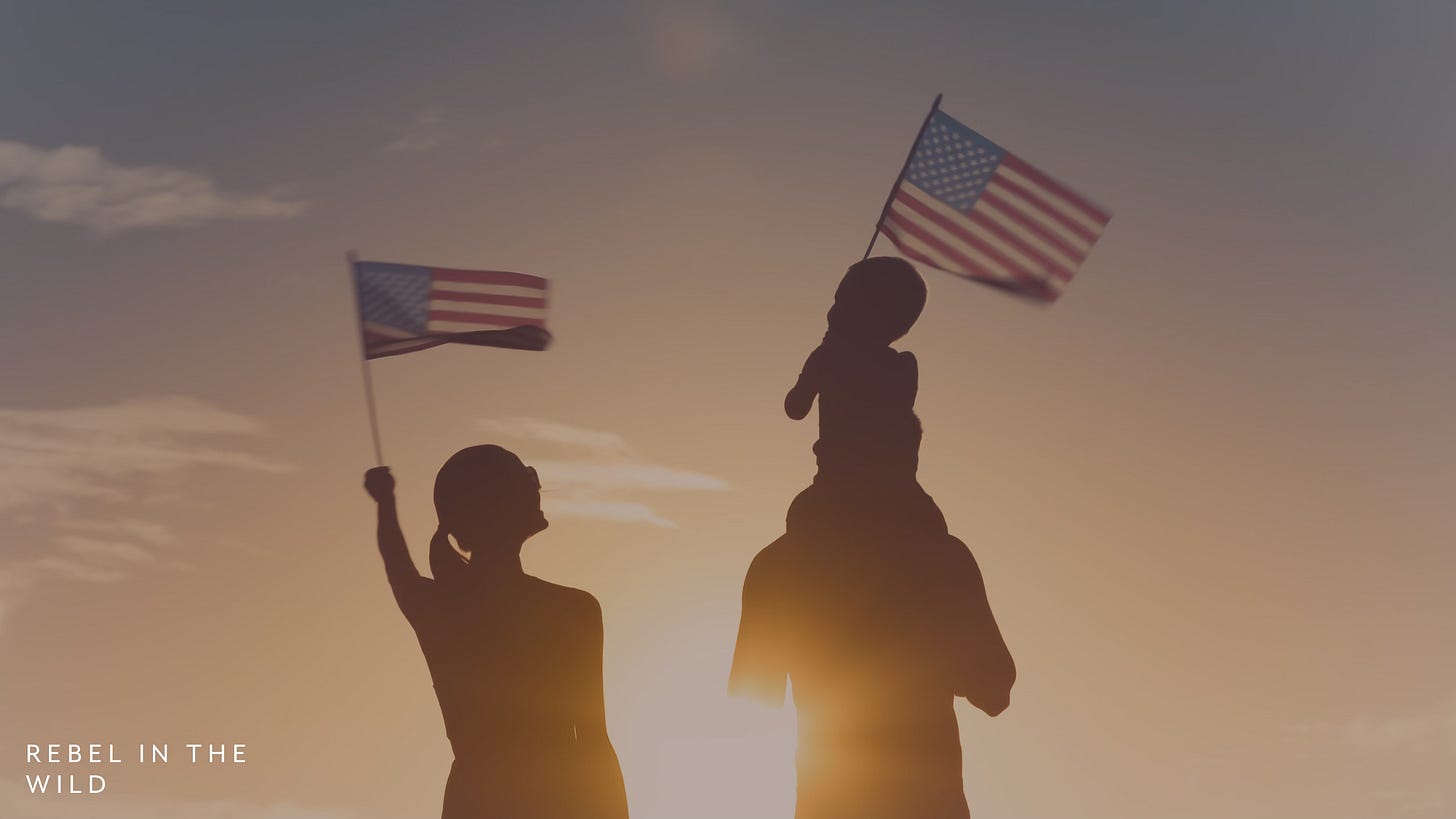I remember the first time I realized just how deep American individualism runs.
I was in Italy, explaining my life to a man I had just met. That I was a single mom. That I had done it alone.
He looked at me, confused.
"What do you mean, alone?"
I repeated myself. Maybe he didn’t understand. Maybe the language barrier was too much.
"But where was your family? Your community?"
It wasn’t judgment. Just genuine confusion. Because in his world, the idea of a mother—any mother—being abandoned or left to fend for herself was simply… incomprehensible.
Not because he thought a woman needed a man, but because he couldn’t imagine a world where no one stepped up.
Because in his world, raising a child is never just one person’s burden to bear. Family shows up. Neighbors help. Friends step in. There is no such thing as doing it alone, because why would you?
We See the Struggle and Shrug
But in America?
We see a single parent drowning and shrug like it’s not our problem.
We see a mother struggling with an unruly child and get annoyed that the kid dared to breathe in our vicinity.
We have built a culture where parents are expected to handle everything alone, and when they inevitably struggle, we call it a “personal problem.” We see exhaustion, overwhelm, and stress not as signs that something is deeply wrong with how we live, but as an individual failure.
"She shouldn’t have had kids if she couldn’t handle it."
"Why doesn’t he have his life together?"
"Not my problem."
Meanwhile, in Mediterranean cultures, family is everything. No one sees a mother struggling and pretends she isn’t there. No one watches a parent drowning and looks the other way.
Because the responsibility of raising the next generation? That belongs to everyone.
And it makes me wonder.
Are we sure postpartum depression is just about hormones?
Or is postpartum depression, at least in part, postpartum isolation?
"Call an Uber"—The Death of Community
My English friend, Martin, arrived in the U.S. and called an American friend with a simple request:
"Hey, can you pick me up from the airport?"
The response?
"Martin, you have money. Call an Uber."
Martin was stunned. Even in the UK, which is more individualized than Mediterranean cultures, a friend would have shown up. Without question.
Because friendship, at its core, is about showing up. It’s about being there, not just when it’s convenient, not just when it's scheduled weeks in advance, but in the small, everyday moments that remind us we are not alone in the world.
But in America, we don’t do that anymore.
We outsource our needs to services. We treat asking for help like an inconvenience. We are so obsessed with self-sufficiency that we’ve made it awkward to rely on each other.
And we are paying the price.
We Worship Isolation and Call It Strength
Somewhere along the way, we decided that needing people is weakness. That struggling alone is a badge of honor. That the ability to say, I did it all by myself somehow makes you superior.
We have replaced community with social media.
We have replaced deep relationships with surface-level check-ins and texts that never turn into real plans.
We have replaced family bonds with a culture that tells us to “cut off” anyone who inconveniences us, instead of learning how to navigate the messiness of human connection.
And for what? The hollow satisfaction of knowing we did it alone?
Because let’s be honest. No one is actually thriving like this.
We are lonelier, more anxious, and more disconnected than ever. We are overworked and undersupported. Our friendships are fragile, our sense of belonging is nonexistent, and we convince ourselves that needing people makes us weak.
And somehow, we think this is progress.
What We Lost When We Chose Individualism
There was a time when we needed each other. When raising a child, building a life, or simply existing meant leaning on the people around us.
Now, we treat human connection like a last resort. Something you seek after you’ve exhausted every other option. When you’ve proven, to no one in particular, that you tried to handle it all on your own first.
But the truth is, we were never meant to live like this.
We are meant to have people to call when things go wrong. To have homes where we are always welcome. To sit around tables filled with laughter and stories, knowing that life is easier, not because we did it alone, but because we never had to.
That is what we lost.
So What Now?
I don’t have a perfectly packaged answer for you. There is no quick fix for a culture built on isolation.
But I know this.
The idea that we are better off alone? It’s a lie. A beautifully marketed, deeply ingrained lie. And the sooner we stop believing it, the better off we’ll be.
Let people in. Ask for help. Be the kind of person who shows up for others, and let them show up for you too.
Because the real flex isn’t doing it alone.
It’s knowing you never have to.





